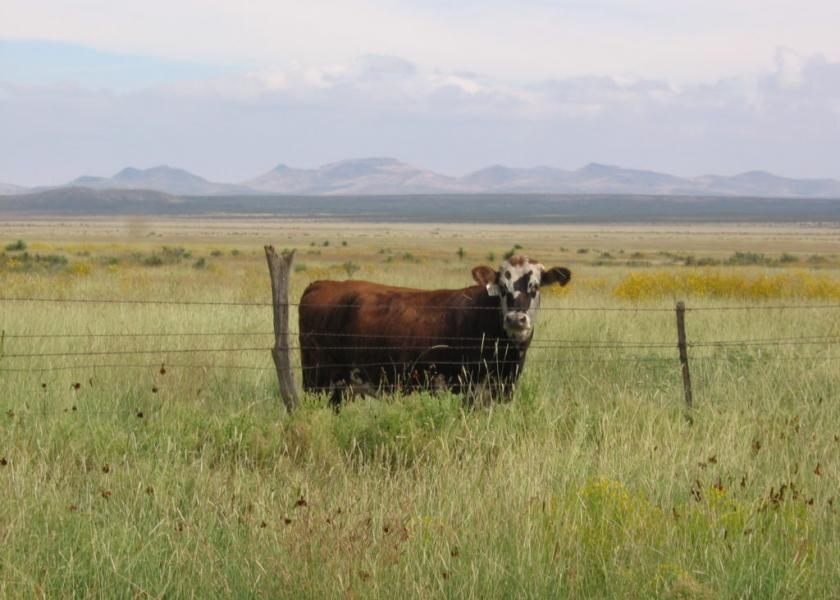Critical Thinking Is Paramount (And No, Cows Are NOT Killing The Earth)

An Open Letter to Superintendent Rick Nielsen, Nebo School District (Utah):
This letter concerns a recent news story regarding the Nebo School District: “Utah school gives kids ‘disgusting’ insects to eat in class for climate assignment on cows killing the Earth.” Undoubtedly, the broader coverage means you’re fully familiar with the situation. While the news story drew attention to the turn-of-events, from my perspective it invokes some broader considerations.
First, climate change facts: Classroom teacher, Kim Cutler, claims, “…we’re killing the world by raising cows and animals. So we need to, get rid of cows…”. There’s simply no basis for that statement. To the contrary, EPA details agriculture as responsible for just 11% of all GHG emissions in the United States. More specifically, the beef industry represents only 3.3% of U.S GHG emissions.
Let’s take that one step further. The U.S. accounts for about 15% of the world’s total GHG emissions. Hence, the U.S. beef industry comprises less than one-half-of-one-percent of total global emissions.
Second, some broader context: Per capita beef consumption (carcass weight basis) in the United States is ~85 lb (rounded up). The total carbon footprint - considering ALL sources of GHG (both direct and indirect) associated with that production - equates to 22 kg CO2 equivalent per kg of beef. Accordingly, the annual per capita carbon footprint for beef consumption is ~.85 mt CO2-eq. Moreover, advances in beef industry efficiency and productivity have enabled a reduction of more than .7 mt CO2-eq (nearly half) during the past 50 years.
Third, closer to home: EPA also outlines that 27% of GHG emissions are attributable to transportation. To that end, Utah’s Office of Tourism reports the state benefitted from having 17.8M out-of-state visitors in 2021. I’m one of those.
Now some quick math. A roundtrip flight for me from Nashville to Salt Lake City (~2800 miles) would produce the equivalent of .815 mt of CO2. In other words, just my portion of visiting Utah is roughly the equivalent of eating beef for an entire year. On average, my trip is likely representative of many visitors – and that occurred nearly 18M times in Utah in 2021.
None of that is intended to be critical of tourism. Rather, it’s an important industry and essential part of economic development in the state. I’m thankful for, and respectful of, the opportunity to visit Utah. As such, it’s offered as a tangible example for some broader context and draw attention to the absurdity of Ms. Cutler’s supposition.
Fourth, it demeans ranching families: Ms. Cutler’s argument completely disregards the importance of farming / ranching to the individual families whose livelihood depends on such - and their collective economic contribution to their local communities and the state. Not to mention, it neglects the respective role of ranchers – working in conjunction the Forest Service and BLM – who provide meaningful stewardship for, and preservation of, the state’s public lands (thereby also positions them as key partners in the role of Utah’s tourism).
Fifth, Nebo’s activisim: The news story reports Ms. Cutler’s assignment instructed her 6th-grade students to write an argumentative essay “but did not permit students to disagree”. She explained, “There’s only one right answer to this essay.” That’s inherently counter-intuitive: a single viewpoint defeats the very purpose of requiring students to do their own research and subsequently provide an expositive argument.
Given that, one of the most concerning aspects in all this surrounds the very foundation of what occurred in Ms. Cutler’s classroom. It stems from training the teachers received at the District level. Seemingly, Nebo’s classrooms are increasingly prioritizing climate change activism and subsequently promoting a misplaced anti-beef agenda.
Last, critical thinking is paramount: All of the discussion above regarding climate change and beef and transportation demonstrates the importance of developing the ability to sort facts and think critically. However, the Nebo School District has seemingly relinquished its responsibility to provide such instruction.
The broader principles are what matter most. And therein lies the crux of all this. How are we supposed to get the next generation to reason clearly through any issue, if we’re unwilling to do the same?
The public school, and its effectiveness, is an essential cornerstone of our society. No one articulates that better than Henry Hardin Cherry. Therefore, I’ll conclude with one of his great exhortations regarding the paramount importance of critical thinking instruction from his book, Education and the Basis of Democracy (c. 1926):
The hope of our country is in a people who read, think, and serve; who preserve the right to take the initiative for themselves; and who challenge the right of any man or organization to do their thinking and voting for them.
Respectfully,
Nevil Speer, PhD, MBA
Nevil Speer is an independent consultant based in Bowling Green, KY. The views and opinions expressed herein do not reflect, nor are associated with in any manner, any client or business relationship. He can be reached at nevil.speer@turkeytrack.biz.







